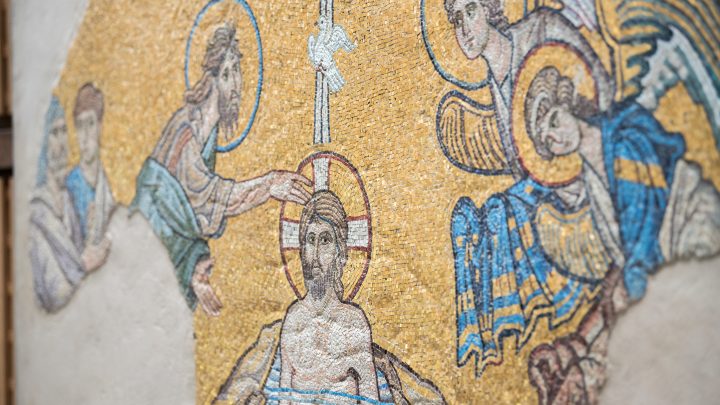The Week of Prayer for Christian Unity takes place this year from January 18-25. The theme is “Do You Believe?” and is based on Jesus’ conversation with Martha in John 11: “I am the resurrection and the life. Those who believe in me, even though they die, will live, and everyone who lives and believes in me will never die. Do you believe this?”
The theme was chosen in recognition of the 1700th anniversary of the First Council of Nicaea (325), at which the words “I believe” were chosen to anchor the Creed as an instrument of universal Christian unity. For each day during this Week of Prayer for Christian Unity, the members of the Christian Unity and Interreligious Relationships (CUIR) committee will share a series of devotions based on the statements in the Nicene Creed.
You can sign up to receive these devotions each morning in your email or view them on our website.
Day 6: He will come again in glory to judge the living and the dead, and his kingdom will have no end.
There is a wonderful old icon from the sixth century, still kept at Mt. Sinai. Several feet tall, as ancient icons often are, it shows Christ robed in majesty with a halo around his head and looking with interest directly at the viewer. In his left hand he holds a Bible or gospel book. His right hand is raised in a gesture of teaching or blessing. In Eastern Orthodox thought, the icon represents Christ Pantocrator, that is, “Christ, ruler of all.” He is at the same time majestic and awesome, yet benevolent and interested in our welfare. It is also clear from his gaze that he knows all about us.

We might take this icon as a point of entry into the idea of Jesus Christ as judge of the living and the dead. It is an idea on which we do not often dwell, but it is nevertheless true, as Jesus’ parable of the sheep and the goats in Matthew 25 reminds us. We find it difficult to think that the one who calls us friend is also the one to judge us. Yet, upon reflection, who is in a better position to know us—warts and all—than our best friend? Who is better able to offer us a word of correction, a word of direction, a word of encouragement, than our closest friends? Christ’s judgement is not meant to be harsh; it is meant to be redemptive. Indeed, this is the very root of the idea of restorative justice. Those in the parable who are sent into eternal punishment are sent there because of their steady refusal to accept God’s guidance and mercy. Those who are invited into the kingdom are invited there because they have lived by God’s grace and shown in the way they treat both neighbors and strangers that they accept and know God’s love. Christ’s judgment of us is awe-inspiring in breadth and depth. How we receive that judgment is up to us.
The creed goes on to speak of the kingdom, in this case Christ’s kingdom. Again, we reflect upon the idea of Christ as ruler of all that is, ruler of all time. As the Father’s only son, Christ rules eternally with him. In Psalm 139, the psalmist considers God’s thoughts: “How precious to me are your thoughts, O God! How vast is the sum of them!”
My daughters will sometimes ask, “where are we?” I will reply, “In the car.” They will ask, “And where are we in the car?” “In the road.” They continue, “Where are we in the road?” “In North Carolina.” “And where are we in North Carolina?” “In the world.” “And where are we in the world?” “In the solar system.” “And where are we in the solar system?” “In the Milky Way Galaxy.” “And where are we in the galaxy?” “In the universe.” “And where are we in the universe?” “In the mind of God.”
You and I, and all creation, are alive because we are in the mind of God, who is creator and ruler of all, now and forever. As it was in the beginning, is now and ever shall be, world without end. Amen.
Roderic L. Mullen is a member of CUIR and serves as pastor at Allensville UMC (Roxboro) and Mt. Tirzah UMC (Timberlake).
Photo by Albin Hillert, 4 October 2019, Geneva, Switzerland: Ecumenical Centre, Geneva.

